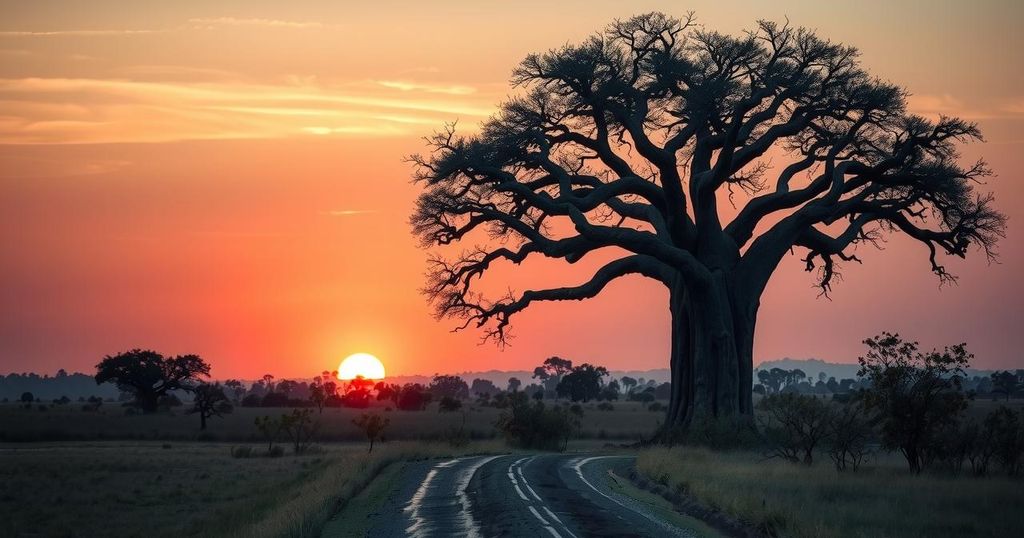Escalating Tensions in Africa: The DRC and Rwanda Conflict Revisited

The conflict between the DRC and Rwanda is escalating, centered on the M23 rebel group’s control of Goma and related resource exploitation. Long-standing historical resentments and military corruption complicate the situation, leading to widespread humanitarian crises. International calls for intervention are rising, highlighting the need for a comprehensive peace strategy to resolve the conflict’s root causes.
The ongoing tension between the Democratic Republic of the Congo (DRC) and Rwanda has surged towards a potential catastrophic conflict, as the M23 rebel group recently captured Goma, exacerbating an already tumultuous situation in Central Africa. The conflict is underscored by a history of violence that spans three decades, now reigniting due to accusations over rare mineral exploitation and the legacy of the Rwandan genocide. International calls for Rwanda to withdraw its forces from DRC are growing, especially following South Africa’s warning regarding further Rwandan aggression being a declaration of war.
Key factors fuelling the crisis include the scramble for valuable minerals like coltan and cobalt and the unresolved tensions stemming from the 1994 Rwandan genocide. Rwanda contends that Hutu extremists involved in the genocide are still present in Eastern Congo, while the DRC blames Rwanda for utilizing the M23 group to seize control of the region’s mineral wealth. The DRC’s President Félix Tshisekedi’s rejection of peace negotiations with M23 has also contributed to escalating violence, leading to significant territorial losses for his administration.
On the ground, demoralized DRC forces are facing challenges, as corruption within the military undermines morale and effectiveness. The disparity in pay between local soldiers and foreign mercenaries has caused significant discontent, further complicating the situation for Tshisekedi’s government. The humanitarian toll is staggering, with millions displaced as violence continues, particularly in the eastern regions of DRC.
Rwanda’s actions are viewed by some observers as an attempt to alter the fundamental power dynamics in Central Africa, with fears mounting that President Paul Kagame aims to destabilize and potentially topple the Congolese government. Although a ceasefire between M23 and DRC was recently established, experts warn that this alone will not resolve the deep-rooted issues driving the conflict. A comprehensive approach addressing underlying grievances and fostering peace is emphasized as essential for long-term stability.
The conflict between the Democratic Republic of the Congo (DRC) and Rwanda is deeply rooted in historical, ethnic, and economic complexities. The M23 rebel group, composed mainly of individuals from the Tutsi ethnic group, has reignited tensions, claiming to protect Rwandan interests against Hutu extremists. The DRC, rich in natural resources, particularly rare minerals crucial to technology, has become a battleground for these competing interests. The long-lasting implications of the Rwandan genocide continue to shape the geopolitical and social landscape in the region, fueling distrust and conflict.
The precarious situation between the DRC and Rwanda highlights a multifaceted crisis driven by historical grievances, resource competition, and internal corruption. While recent ceasefire agreements offer a glimmer of hope, they are insufficient without addressing the core issues at play. Sustainable peace in this volatile region will require a concerted effort from local leaders and the international community to engage in meaningful dialogue and foster cooperation.
Original Source: theweek.com








